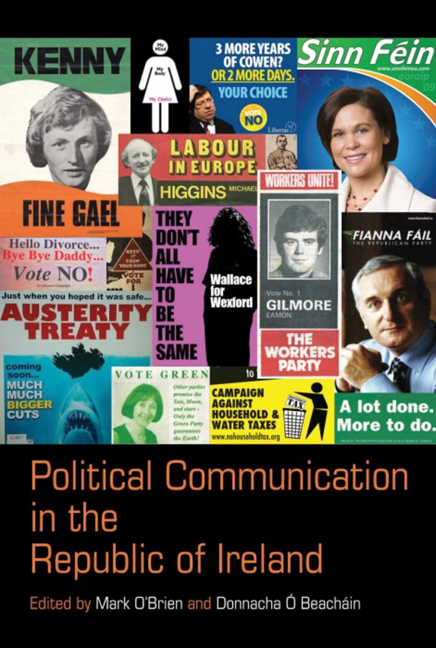Book contents
- Frontmatter
- Contents
- List of Illustrations
- Glossary
- Notes on Contributors
- Acknowledgements
- Introduction
- Part One Political Communication and Politicians
- 1 Political communication: an overview
- 2 Elections and political communication
- 3 A pragmatic partnership: politicians and local media
- 4 Political communication and the ‘loony left’
- Part Two Political Communication and Journalism
- Part Three Political Communication and the Public
- Conclusion
- Index
1 - Political communication: an overview
from Part One - Political Communication and Politicians
- Frontmatter
- Contents
- List of Illustrations
- Glossary
- Notes on Contributors
- Acknowledgements
- Introduction
- Part One Political Communication and Politicians
- 1 Political communication: an overview
- 2 Elections and political communication
- 3 A pragmatic partnership: politicians and local media
- 4 Political communication and the ‘loony left’
- Part Two Political Communication and Journalism
- Part Three Political Communication and the Public
- Conclusion
- Index
Summary
It is not a trivial challenge to answer the question – what is political communication? – and this overview is an attempt to provide a number of perspectives on the answer. At its most obvious level, it refers to the role of communication in the political process, especially during the periodic enactment of the central ritual of all modern democracies – the election of new governments. It includes the speeches of politicians, televised debates between candidates, the reporting by political correspondents of candidates’ behaviour, especially their public utterances, the use of billboards and posters on lamp-posts to show off party emblems and slogans, and new uses of the internet to find and motivate voters. We might call this ‘Type A’ political communication. But consider the following news story taken from the middle of 2012, a far less obvious but much more complex example of our subject that illustrates what we might call ‘Type B’ political communication.
It is a mid-summer weekend in Dublin, the electronic dance music trio Swedish House Mafia is giving a final-tour concert, and 45,000 teenage fans are converging on the Phoenix Park for what should be a day of fun. But soon, the event is descending into chaos under the weight of under-age binge drinking, drug-taking and violence. YouTube footage captures images of bare-chested bellicose youths kicking and punching each other in a bath of mud, while on-lookers join in on a whim. When the mayhem is over, the toll is two drug deaths, nine stabbings, 33 arrests, and 70 charges brought by police. Now the media take note. Before the day is done, it has become a major mediated event, dominating news bulletins and projected across the country through a wide range of media channels.
Then it starts to become political. It initiates a maelstrom of political communication involving a wide range of actors and activating a range of public institutions. The police announce a comprehensive review of the violence, to make recommendations to the minister for justice. Other public bodies spring into action promising their own reviews: the city council that issues licenses for public events, the managers of the Phoenix Park, the director of public prosecutions. The media hold the event at the top of their agenda for the next 72 hours and start teasing out issues relevant to public health, the education of teenagers, and the nation's drink habits.
- Type
- Chapter
- Information
- Political Communication in the Republic of Ireland , pp. 7 - 24Publisher: Liverpool University PressPrint publication year: 2014



